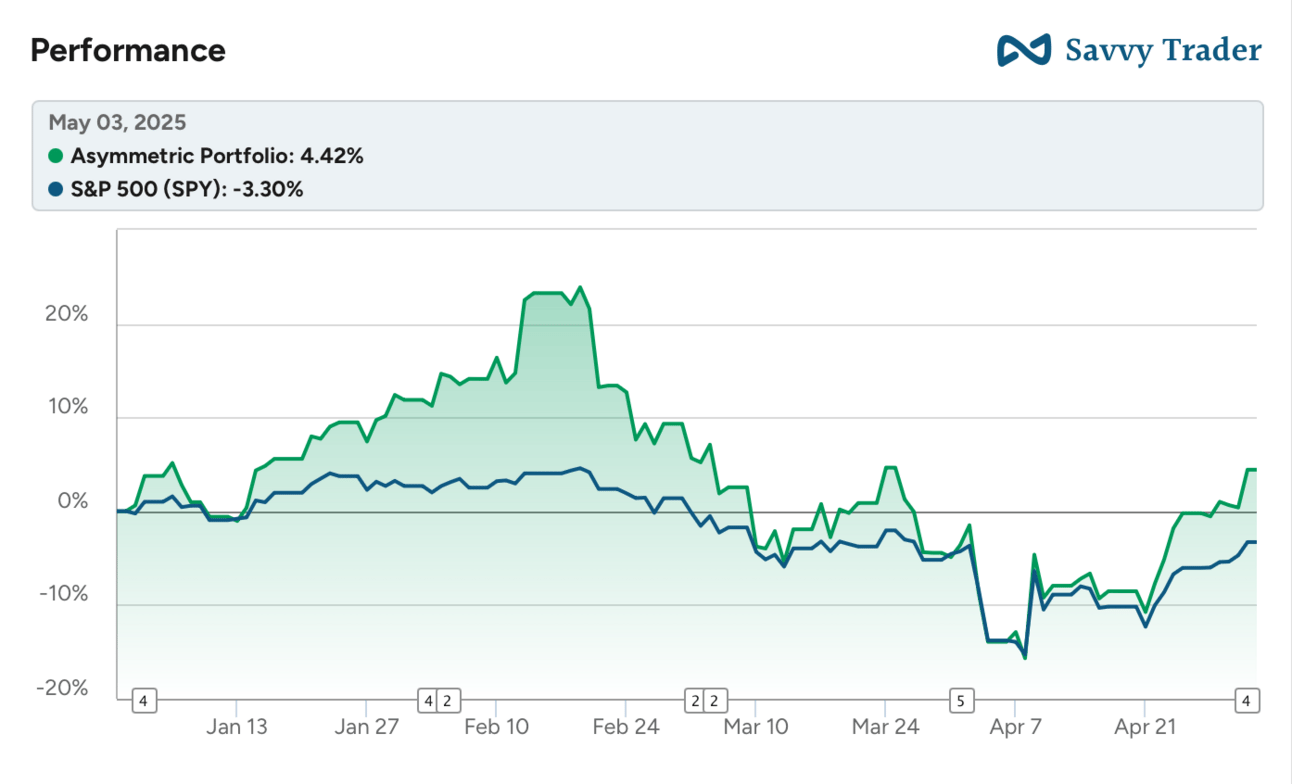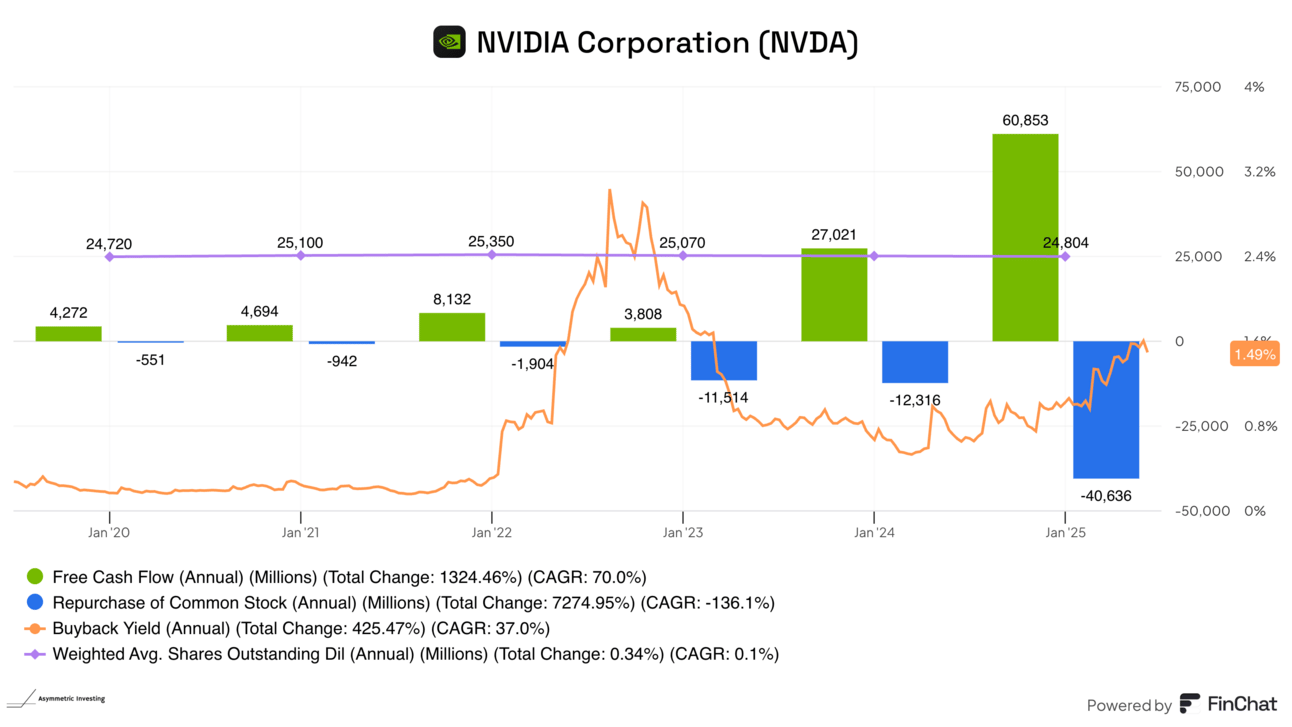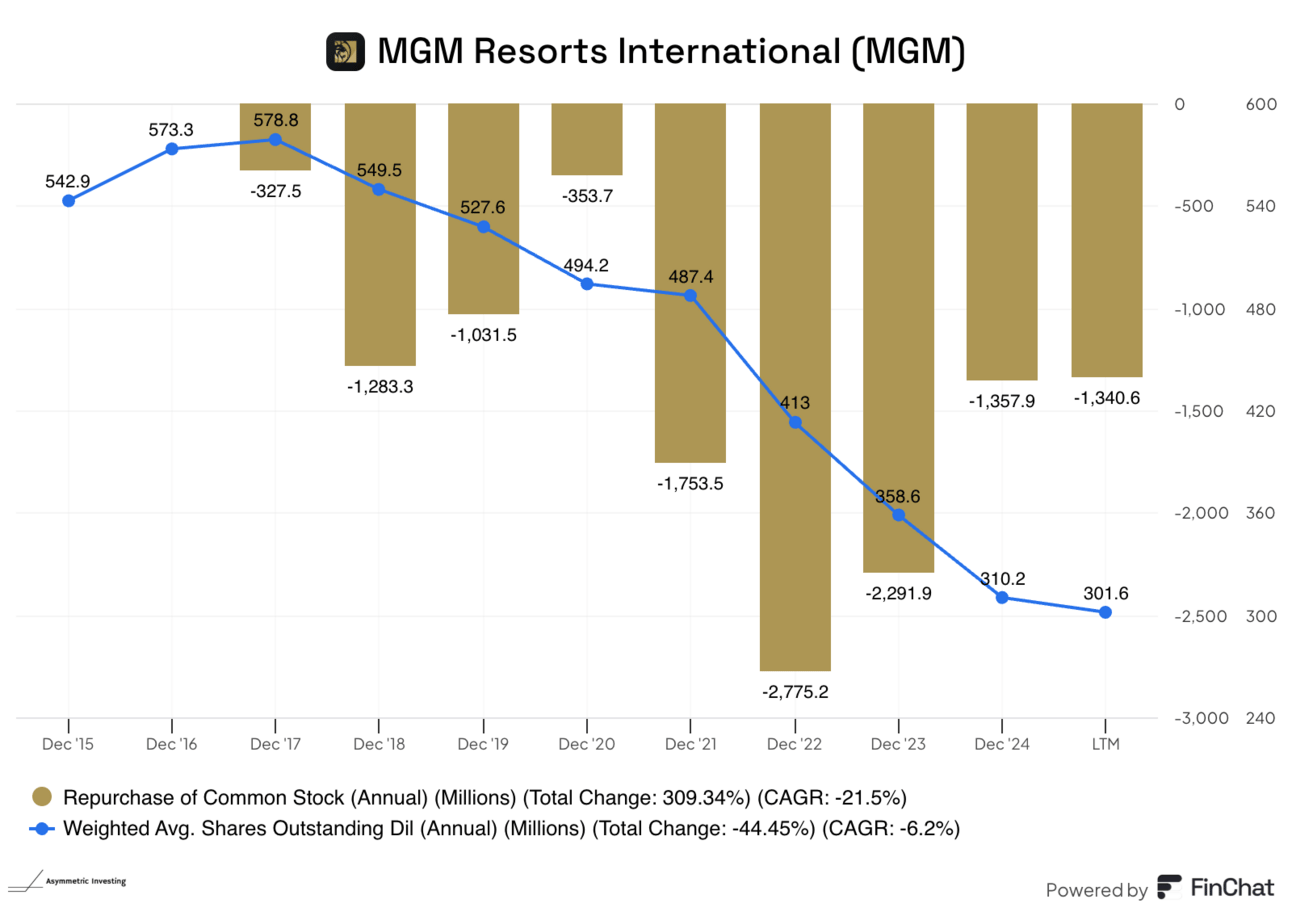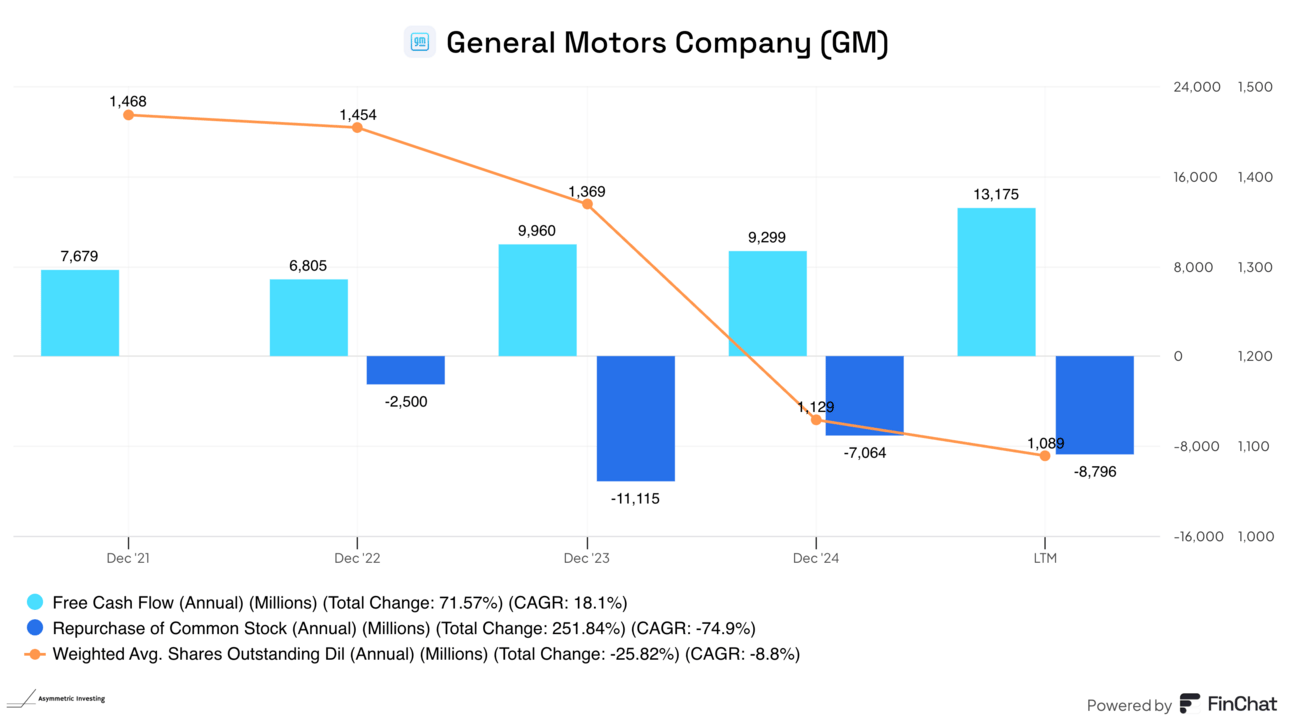In another shocking twist, the stock market continues to rise despite tariffs leading to a collapse of imports and a potential supply shock in the next few months. But I’ve discussed that enough, and I’ll take a break from the uncertainty this week.
The Asymmetric Portfolio swung to positive territory year-to-date this week. Given my investing style, I’m proud that the portfolio is up while the market is down. That won’t be the case in many down years.

All of the charts you see here are easy to make, research like finding transcripts and insider buys is easier than ever, and you can even ask an AI about earnings transcripts. I can’t say enough how much easier it’s made my research, and you can start with 2 weeks free. 👇
In Case You Missed It
Here’s some of the content I put out this week.
What I’m Buying in May 2025: I bought 4 stocks this week.
MGM Resorts and Spotify Earnings: Buybacks were big for MGM, and Spotify is about consistency.
SoFi and Robinhood Earnings: Talk about growth machines!
What Is a Buyback
For a public company, buying back shares of stock is just like buying out other owners of a private business.
If you have a private business with 10 equal owners that’s worth $1 million, then buy out one owner for $100,000, you have 9 equal owners.
If the business grows in value again to $1 million, the stake will rise in value from $100,000 to $111,111.
The way we see this in public stocks is through earnings per share.
Buybacks reduce the denominator of earnings/share.
🔼 Buybacks
🔼 Earnings per Share
But not all buybacks are good.
Rules of a Good Stock Buyback
I love a good buyback, but that doesn’t mean all buybacks are done well. In fact, most are terrible.
I have a few rules for judging buyback programs.
Start with an impeccable balance sheet.
If you have a lot of debt, pay that off first!
Buybacks are not a way to offset stock-based compensation.
Only buyback stock when shares trade for under 15x earnings and/or free cash flow.
Buybacks with windfall — or one-time — profits are a red flag.
The balance sheet point should be obvious, but some companies still buy back stock despite poor balance sheets. Debt should be judged case-by-case, but I typically like zero debt for a company buying back stock.
If buying back stock is the only use for your cash, that’s a bad position to be in. For example, Alphabet, Apple, and Airbnb are buying back stock, but for what? Shares aren’t cheap enough for it to make sense, and most of the buybacks are just offsetting stock-based compensation. Those are bad buybacks.
Value is what most companies get wrong about buybacks. For example, NVIDIA has spent over $65 billion on buybacks since 2020, and the share count is up!

MGM Resorts, on the other hand, is buying back stock at an extremely cheap price. Management has anticipated slowing down buybacks, but thinks the stock is so cheap that it may be worth taking on debt to buy the stock. A $2 billion buyback authorization announced last week would reduce shares outstanding by nearly 25%.

GM is another good example of a great buyback. The stock trades for 4-5x earnings, and you can see the share count is down at an 8.8% CAGR since 2021, and this chart doesn’t even do it justice. Shares outstanding ended Q1 2025 at 983 million.

Buying back stock can be a great way to add value to shareholders. But not all buybacks are good.
If you’re discerning, you can see great buybacks from a mile away and sniff out bad ones you should stay away from.
You can get all Asymmetric Investing content, including deep dives, stock trades, and ongoing coverage of Asymmetric Universe stocks with a premium membership.
All for only $100 per year.
Disclaimer: Asymmetric Investing provides analysis and research but DOES NOT provide individual financial advice. Travis Hoium may have a position in some of the stocks mentioned. All content is for informational purposes only. Asymmetric Investing is not a registered investment, legal, or tax advisor, or a broker/dealer. Trading any asset involves risk and could result in significant capital losses. Please do your research before acquiring stocks.



